|
Books Should Be Free Loyal Books Free Public Domain Audiobooks & eBook Downloads |
|
|
Books Should Be Free Loyal Books Free Public Domain Audiobooks & eBook Downloads |
|
Literature |
|---|
|
Book type:
Sort by:
View by:
|
By: Anthony Trollope (1815-1882) | |
|---|---|
 Doctor Wortle's School
Doctor Wortle's School
Anthony Trollope’s fortieth novel, published in 1881, concerns a respectable Christian boys’ school whose proprietor unknowingly hires a woman who apparently has two husbands: A devoted English scholar and an abusive drunkard from the American south. The book interweaves a sensitive and realistic exploration of Dr. Wortle’s moral dilemma with a humorous look at small-town gossip and--of course--a romance involving the doctor’s beautiful young daughter. ( | |
 John Caldigate
John Caldigate
After a rather dissolute youth and having been disowned by his father, John Caldigate sets sail for Australia with his friend Dick Shand hoping to make his fortune in the goldfields in New South Wales. On the voyage, he meets Euphemia Smith and they conduct an indiscreet affair aboard. After various problems, Caldigate literally strikes gold and returns to Sydney where he meets Euphemia again and they settle, living as man and wife. After a time, they quarrel and Caldigate returns to England. On his return, Caldigate meets and marries a previous acquaintance, Hester Bolton, and they have a son... | |
 Is He Popenjoy ?
Is He Popenjoy ?
Trollope returns in Is He Popenjoy to two of his favorite subjects: property and inheritance. As in "Doctor Thorne," the issues are complicated by the specter of possible illegitimacy. Lord George Germain, a thoroughly respectable, upstanding, if not particularly bright younger son with new wife, rather expects to inherit a title, since his vicious and dissolute elder brother, the Marquis of Brotherton, who lives in Italy, shows no signs of settling down and producing heirs. Then comes a thunderbolt in the form of a letter from the Marquis suddenly claiming that he has, late in life, married an Italian widow and sired a son... | |
 Cousin Henry
Cousin Henry
Indefer Jones struggles to name an heir to his estate. Will he choose his favorite niece, Isabel, or a male heir? The story turns on the trouble that arises when Indefer fails to tell anyone his final decision before passing away. | |
 Autobiography of Anthony Trollope
Autobiography of Anthony Trollope
Anthony Trollope's autobiography will delight you whether or not you've read (or listened to) any of his many works. His honest if self-deprecating tone is at times hilarious and at times piteously moving. His detailed descriptions of his writing process and his philosophy of writing as work rather than art are fascinating. Fans of Trollope will enjoy learning the man's perceptions of his novels' shortcomings and triumphs. Anyone will appreciate learning about his years devoted to churning out literature for profit while working full time with the post office. | |
 The Golden Lion of Granpere
The Golden Lion of Granpere
Time to do a short Continental trip with Trollope and see if we agree with Walpole. "...not only Trollope's very best shorter book, but one of the most charming idylls in English literature. - . . It has all the colour and richness and cohesion of something done irresistibly." -Walpole . The storyline is simple - boy meets girl - parents object - trials and tribulations follow - and then the story reaches it's conclusion - but you will need to find what that is for yourself ! | |
 Mr Scarborough's Family
Mr Scarborough's Family
MR SCARBOROUGH, wealthy owner of Tretton Park in Staffordshire, is dying. His eldest son and heir Mountjoy has gambled away his inheritance to avaricious money-lenders who hold post-obits to the entire value of the estate.Then Mr. Scarborough declares Mountjoy illegitimate. He claims that he only married his wife shortly before the birth of his second son Augustus, thus making him the real heir. Is this the truth ? - or a ploy to save the estate falling into the hands of some rather shady money lenders ? ....... | |
 Castle Richmond
Castle Richmond
| |
 Kept in the Dark
Kept in the Dark
Kept in the Dark is a novel by the 19th century English novelist Anthony Trollope. It was published in eight monthly installments in 1882, and also in book form in the same year. Cecilia Holt ends her engagement to Sir Francis Geraldine because of his indifference to her; she goes abroad and meets Mr George Western, who has been jilted by a beautiful girl. They marry but she does not tell him she has been previously engaged, although he has told her his story. When Western is informed of the previous engagement by Sir Francis, Western leaves his wife and goes abroad; she returns to Exeter to live with her mother... | |
 Aaron Trow
Aaron Trow
What is it like to be a fox hunted by hounds? We find out through the senses of an escaped convict as he struggles to free himself from would-be captors. The struggle is brutal. In the end, we are left wondering which person really wins--the pursued or the pursuer. Or perhaps which one is now the pursuer, which the pursued. | |
 An Old Man's Love
An Old Man's Love
This was Trollope's last completed novel, and he may have acquired his sympathy for older lovers with age! A not-so-very-old man, Mr. Whittlestaff, dearly loves Mary Lawrie, the girl he provides a home for after her father's death. He wishes to marry her, and she reluctantly accepts him, but warns him of her deep regard for a young man she had known years earlier. That Mr. Gordon had not exactly engaged her, but had gone off to seek his fortune and had not communicated with Mary ever since. Shortly after Mary accepts Mr. Whittlestaff, Gordon shows up. Trollope works out a final arrangement which resolves the quandary, but not with comfort. (Arnold Banner) | |
 Macdermots of Ballycloran
Macdermots of Ballycloran
This is the story of the Macdermots of Ballycloran the story is about the tragic demise of a landowning family. Larry Macdermot lives in a dilapidated mansion in Co. Leitrim, whose mortgage to Joe Flannelly he cannot keep up. Enmity between the Macdermot and Flannelly families is sharpened by son Thady's having declined to marry Joe Flannelly's daughter, Sally. Macdermot's daughter, Feemy, is herself seduced by the locally hated English police officer, Captain Myles Ussher. This was Trollope's first published novel, which he began in September 1843 and completed by June 1845. However, it was not published until 1847. | |
 Struggles of Brown, Jones, and Robinson
Struggles of Brown, Jones, and Robinson
Billed as a satire concerning the dishonest advertising and business practices of the day, it tells the tale of an upstart clothing business doomed from the get-go to utter failure. Its senior partner (the elderly Brown, who provides the investment) is far too timid for business. His son-in-law (Jones, who runs the store) is stealing from the till, and the junior partner, Robinson (who writes advertisements for the store) is so obsessed with the idea that advertising alone will drive the business, he uses up every last penny of the capital investment in a series of increasingly ludicrous ad campaigns and publicity stunts... | |
 Ralph the Heir
Ralph the Heir
As usual, Trollope creates a nice variety of characters of different English classes, sentiments and positions. The primary themes are the inheritance of property, extravagance or reason in the spending of assets, the mating of young people, and the electoral practices of the time. The election chapters are based on Trollope's own experiences when he ran for Parliament.There are, of course, many subplots which allow Trollope to express, through dialog, his opinions about greed, snobbery, work ethics and dandyism... | |
 Nina Balatka
Nina Balatka
A romance set in Prague between a Catholic and a Jew. In this short novel, Trollope moves away from his usual milieu to explore a theme which has universal resonance. | |
By: Anton Chekhov (1860-1904) | |
|---|---|
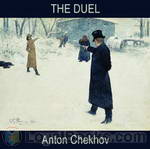 The Duel
The Duel
The plot centres around Laevsky, who is living in a small seaside town in the Caucasus after running away with another man's wife, Nadyezhda Fyodorovna, amid dreams of starting a new life.The dreams have come to nothing as Laevsky idles away his life drinking and playing cards, and Nadyezhda begins to have other affairs.Laevsky's scheme to run away again, this time without his mistress, brings him into conflict with the rationalist Von Koren, who believes in Darwinian principles of natural selection and extinction of the weak and useless.Matters come to a head when an outburst from Laevsky leads to a duel. Von Koren is determined to teach Laevksy a lesson.(Introduction by Phil) | |
 Ward No. 6
Ward No. 6
The line between sanity and insanity is blurred in this classic novella by Anton Chekhov. The disillusioned idealist Dr. Rabin is in charge of a provincial lunatic asylum, overseeing with weary, dubious policies a motley group of patients, a group that mirrors in microcosm all of human and especially Russian society. Seeking answers to profound questions, Dr. Rabin enters into dialogues with both staff members and patients, trying to make sense out of what has become of his life, until it becomes less and less clear who is the doctor and who is the patient... | |
 Anonymous Story
Anonymous Story
In "An Anonymous Story," Chekhov continues to explore his favorite themes of superfluous men, ironic rakes, exploited women, and the dangers of social conventions to human happiness. The Anonymous Narrator is a feckless, would-be revolutionary who gets himself hired on as a flunkey in the household of the young useless aristocrat Orlov, hoping to spy out some useful information for the Cause. Orlov seduces the beautiful Zinaida Fyodorovna away from her husband but quickly tires of her. The Narrator, another in the long line of Russian literary superfluous men, allows Orlov to use him to deceive Zinaida Fyodorovna, hating himself for it all the while... | |
 My Life: The Story of a Provincial
My Life: The Story of a Provincial
A provincial youth of wealth and noble status refuses to employ himself in the typical occupations of the higher classes, thus acquiring a reputation as a lazy good-for-nothing. In reality, he is intensely sensitive to the injustices perpetrated by his social class upon the working classes of town and country, and resolves to become a common laborer, taking employment as a house painter and ikon gilder. All classes of society around him respond to this revolutionary action with bewilderment and ridicule, even the lowest workmen feeling threatened by this insolent shaking of the cosmic structure... | |
 Steppe
Steppe
Little Yegorushka goes off to school for the first time, setting out on the journey in the company of his Uncle Ivan, the local priest Father Christopher, and the fun-loving servant Deniska. Along the way they meet an extraordinarily colorful array of characters, named and nameless: the innkeeper Moisey Moisevitch, the beautiful Countess Dranitsky, the mysterious Varlamov, Emelyan the voiceless singer, Tit the steppe waif, and many more. But the most colorful and extraordinary character of all is the Steppe itself in every mood and weather, painted stroke-by-masterly-stroke by Chekhov in all its wild, musical, redolent, flowering, chirruping, infuriating exuberance. (Expatriate) | |
 Three Years
Three Years
Laptev, the rich but unattractive scion of a merchant, renounces his independent-minded, intelligent, devoted, but equally unattractive mistress Polina in order to marry the beautiful young gold-digger Yulia. Their life together quickly deteriorates into a loveless agony, Laptev seeking some sort of meaning in his life while Yulia whiles away her youth with the sparkling young Moscow social scene. The compelling question of the story is whether or not Laptev and Yulia can redeem something of lasting value from what seems to be a hopelessly empty relationship... | |
 Black Monk
Black Monk
Aspiring academic Andrei Kovrin, while summering in the countryside per the advice of a physician, is haunted by the apparition of a black monk that appears only to him and encourages him in his intellectual pursuits. Although Kovrin is the only one who can see the apparition, the monk assures him that, even if he were a creation of the imagination, he would still be a thing of nature and consequently real. Chekhov uses this vehicle for a gothic exploration into scholarly obsession and madness. - Summary by Daniel Davison | |
By: Aphra Behn (1640-1689) | |
|---|---|
 Rover (Part One)
Rover (Part One)
| |
By: Aristotle (384-322 BC) | |
|---|---|
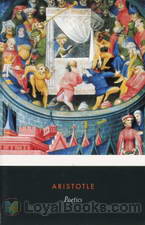 Poetics
Poetics
Aristotle’s Poetics from the 4th century B.C. aims to give a short study of storytelling. It discusses things like unity of plot, reversal of situation, and character in the context of Greek tragedy, comedy and epic poetry. But it still applies today. It is especially popular with screenwriters as seen in many script gurus’ how-to books. | |
By: Arnold Bennett (1867-1931) | |
|---|---|
 The Card
The Card
The ‘Card’ in question is Edward Henry Machin – his mother called him ‘Denry.’This light-hearted story is of his rise from humble beginnings as the son of a washerwoman and sempstress in the last quarter of the nineteenth century, in the pottery towns (which Arnold Bennett christened ‘The Five Towns’) of the English Midlands; how, by his own wits, enterprise and ‘nerve’ he rose to wealth, married bliss and public recognition as the youngest-ever mayor of his home town. “’And yet,’ demanded Councillor Barlow, ‘what’s he done? What great cause is he identified with?’‘He’s identified,’ said the speaker, ‘with the great cause of cheering us all up’.” | |
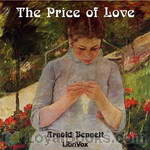 The Price of Love
The Price of Love
Rachel Louise Fleckring works for the elderly Mrs Maldon, and although with the woman for only a short time, she is taken into the heart of the family. She falls in love with one of Mrs Maldon’s descendents, but along the way, she has to come to terms with the fact that he isn’t, perhaps, the perfectly honest man she thought he was. | |
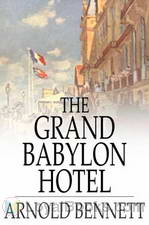 The Grand Babylon Hotel
The Grand Babylon Hotel
Theodore Racksole, a rich American multi-millionaire, buys the Grand Babylon Hotel, a luxurious hotel in London, as a whim – and then finds out there are strange things going on – a German prince is supposed to arrive but never turns up, someone is found murdered in the hotel, but then the body disappears. With the help of his independent daughter Nella and another German prince, Racksole sets out to solve the mystery.Bennett wrote this as a 15-part serial, for a lark, in 15 days, and sold it for 100 pounds. It first appeared in The Golden Penny in 1902, which described it as “the most original, amusing, and thrilling serial written in a decade”. | |
 The Old Wives' Tale
The Old Wives' Tale
The Old Wives’ Tale is a novel by Arnold Bennett, first published in 1908. It deals with the lives of two very different sisters, Constance and Sophia Baines, following their stories from their youth, working in their mother’s draper’s shop, into old age. It is generally regarded as one of Bennett’s finest works. It covers a period of about 70 years from roughly 1840 to 1905, and is set in Burslem and Paris. | |
 Literary Taste: How to Form It
Literary Taste: How to Form It
Arnold Bennett describes a method for enjoying literature, and suggests the contents of a comprehensive library. Chapters 1-10 and 14 describe his method for learning to enjoy literature. Chapters 11, 12, and 13 contain detailed lists of the 337 volumes required to complete a comprehensive library of English works. This reading is from the 1913 version at Project Gutenberg, and so does not contain the revisions made by Swinnerton for the 1939 edition, which included authors of the early Twentieth Century. Swinnerton’s revisions are available from Wikipedia. | |
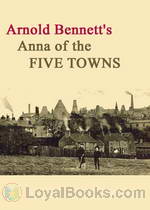 Anna of the Five Towns
Anna of the Five Towns
The plot centers on Anna Tellwright, daughter of a wealthy but miserly and dictatorial father, living in the Potteries area of Staffordshire, England. Her activities are strictly controlled by the Methodist church. Having escaped her father by marrying the respectable and attractive Henry, she attempts in vain to help Willy, son of a drunken and bankrupt business associate of her father's. | |
 The Regent
The Regent
'The Regent' is, if not a sequel to 'The Card', then a 'Further Adventures of' the eponymous hero of that novel.Denry Machin is now forty-three and begins to feel that he is getting old, that making money and a happy home life are not enough and that he has lost his touch as the entrepreneur and entertainer of the 'Five Towns'.In fact, as he says to himself 'What I want is change - and a lot of it too!'. A chance meeting at the local theatre leads to his going to London and then... | |
 Clayhanger
Clayhanger
This first of a trilogy of novels is a coming-of-age story set in the Midlands of Victorian England, following Edwin Clayhanger as he leaves school, takes over the family business, and falls in love.The books are set in Bennett's usual setting of "the 5 Towns", a thinly-disguised version of the six towns of "the Potteries" which amalgamated (at the time of which Bennett was writing) into the borough (and later city) of Stoke-on-Trent.In one of the earlier chapters in the book, Bennett writes that... | |